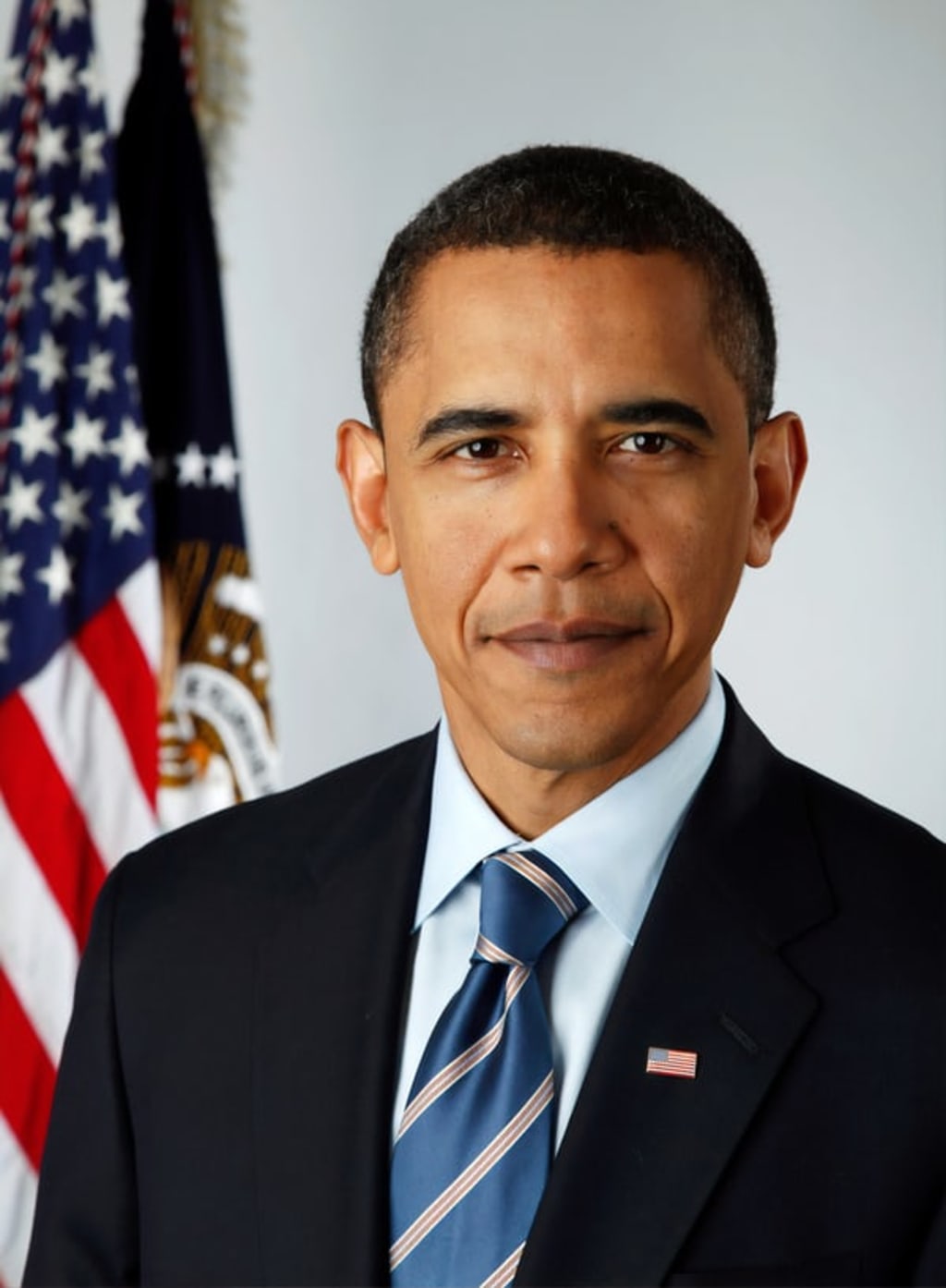A Promise Land
The review of President Obama's memoirs

In William Edward Burghardt Du Bois' magnum opus, the souls of Blackfolk, the preeminent African American scholar of the 20th century, writes of a double consciousness, the sense of always looking at one's self through the eyes of others, of measuring one's soul by the tape of the world that looks on in amused contempt and pity.
Even though, nothing about the final sentence of the previous paragraph could ever be said to be applicable to the 44th President of the united states, The theme of a double consciousness pervades, the philosophic approach that Barack Obama has taken in writing the first volume of his political memoirs.
A promised land, is without question, the most anticipated memoirs in recent times; Going back to August 2004, when My life released, The flagship Waterstones bookstore on Jermyn street, in London, had queues stretching all the way from the green park tube station, waiting for the 42nd President to autograph copies and yet, one suspects, that if it weren't for Covid 19, Britain's premier bookstore would have had a hard time in managing the crowds, wanting to have their copies signed by the first Black President of the United States of America.
A promised land carries on from where dreams of my father and audacity of hope left off, touching briefly on his university dalliances- the successful and not so successful, here we see references to Frantz Fanon, Virginia Woolf and Michel Foucault. Also briefly, he retells meeting his wife at Sidney Austin and his foray into elective politics, from being state senator to being drubbed by Bobby Rush. For those who have read his previous books, there is the quick recall of the events of the 2000 convention.
There is also a slightly detailed rehash of the events leading up to the 2004 senate run, where he manages to convince his missus, having the likes of Axelrod on board and more importantly, enlisting the support of a prominent Black Chicagoan politician, Emil Jones. A bit of attention was paid to the democratic primary race, the peculiarities surrounding the race ( neither Carol Mosley-Braun nor Jesse Jackson Jr. was interested in running) and the fact the republican incumbent wasn't also contesting. Jack Ryan's withdrawal from the race due to the unsealing of his divorce files was captured. His prescience, in his 2002 speech, stating that he wasn't opposed to all wars but dumb wars, stands him in good stead for his 2008 campaign. Unlike in the audacity of hope, in which Obama acknowledges Alan Keyes' extraordinary intellectual brilliance(ability to give a grammatically flawless disquisition on a any subject)and admits to his vanquished senatorial opponent getting under his skin. Professor Keyes, here, receives no such attention.
In this book, he captures in riveting detail, the meeting that took place with Harry Reid, the senate majority leader, who presciently recognizes Obama's unique political talents and urged him to run. Whether this was borne simply out of pragmatism or political expediency on the Senator Reid's part, we will never know, but this political neophyte, also decides to sound out Ted Kennedy, who after, taking the time to talk about some painting on the wall, also expresses the same view. It was at this point, that the protagonist sought about convincing his missus, his longstanding political adviser cum strategist, and his old friends (Jarrett, Nesbitt etc.)from Chicago on his next career move. What happens next is the stuff of legend, which anyone can glean from hours of footage of speeches and interviews on YouTube.
The book carefully reveals the narrative behind the powerfully poignant photograph that was taken of the would be victorious presidential candidate holding the hand of his mother in law, Marian Robinson. We also learn that unlike the convention, where the organization of events was driven by the party, the organization of the inauguration would be handled by the President elect's team.
Once the first African American commander in chief is sworn in, he summons the heads of the banks that were bailed out by the government, telling them, that he was the only thing standing between them and the baying public, he diverts his huge political capital into passing the affordable health care act, taking the a few blows along the way, not least from Senator Reid, who decides to remove the public option, thus diluting the very essence of the plan.A number of concessions are made, here and there to enable the affordable care act to sail through congress. The extraordinary poignancy of this momentous achievement is captured with his right hand man, David Axelrod ( referred to mostly as axe, in the book). and Rahm Emmanuel, his supremely ambitious and energetic chief of staff, brings his 13 year old son to witness the moment.
A highly political pentagon intent on boxing in the President also comes into sharp focus, here. One is slightly surprised that the controversy surrounding Desiree Rogers, his social secretary, who had to resign from her post, as a result of the fall out of an uninvited couple's presence at a reception for Manmohan Singh, wasn't touched on at all, in this book.
Europe, rightly is captured and the author, grapples with the complexities of history, language and culture of the member states. The near collapse of the Greek economy is given full attention, surprisingly, next to nothing is written about the Syriza party led by Alexis Tsipras and his supremely charismatic finance minister, Yanis Varoufakis, who, despite the critical problems of their country, weren't prepared to roll over to Germany and France. Gordon Brown, the erstwhile British Prime minister gets a brief mention, comparing his political skills unfavorably to his immediate predecessor. Nicholas Sarkozy won't have been pleased with the description as being over excitable and speaking far limited English than Angela Merkel. The German chancellor's suspicion of highfalutin' oratory is written about here, to which our hero takes no offence, especially given Germany's recent history. Strangely nothing consequential was written about Silvio Berlusconi, who, at the 2009 summit, convened by Gordon Brown, had visibly irritated her majesty, after shouting the President's name at the end of a group photo-call.
In the section devoted to the environment (The world as it is), the influence of Stanley Ann Durham, the president's mother, stalks the entirety of the chapter. Here,we see how her liberal universalist values have helped shape her son. He recalls a poignant conversation with his mother in which she articulates the raison d'etre of the much maligned body. Further ahead, Malia tasks her father with doing something to save the dwindling numbers of tigers in the wild, especially seeing as they are, her favorite animal. In Copenhagen, our hero orchestrates a Machiavellian move on members of the BRICS economies to sign up to emission reduction; this is done alongside, his vanquished foe during the Presidential primaries and now secretary of state, Hilary Clinton. Despite the protestations of a Chinese delegate, Wen Jiabao and the other players accede to the demands of the mighty US, to which his "body man" Reggie Love salutes.
The oil spill off the gulf of mexico by BP tests the mettle of the new government, the failures of the company is all too apparent and Anthony Hayward is described as a "walking PR disaster". Try as he might to absolve Ken Salazar from the ensuing mess, he still finds time to criticize the mineral management service (MMS), under the interior secretary's remit. Steven Chu, the Nobel prize winning physicist, appointed as Energy secretary, lends his expertise to the oil giant, quickly recognizes the inadequacies of the BP engineers and assembles a team that's able to plug the leak, deep water after 78 days. Chu's intellectual gravitas is given air time here and Obama's happy to credit himself for having the skill to appoint the Nobel laureate, in the first place.
The best part of the book,in my opinion, is the meticulously detailed execution of Osama Bin Laden. Here, arguably more than anywhere else in the book, we get to see the President's outstanding political qualities. We see Leon Panetta provide crucial intelligence of America's most wanted's whereabouts in Abbottabad, Hilary Clinton's 51–49 view on the imminent raid, Vice President Joe Biden's concerns and opposition. The senior military officials tasked with executing the task, William McRaven and Hoss Cartwright, are on top of their subject and every angle and option is considered to ensure its complete success, while this is going on, our hero finds the time to fend off questions from the press and by extension, Donald J. Trump, about his place of birth, first he releases the long form birth certificate, lays the blame of birtherism at the feet of press and mocks the Trump relentlessly at the White house correspondent's dinner. The mission is a complete success and generously, Obama calls his Clinton and Bush to acknowledge their contribution to the process, speaks to McRaven and is insistent on the Vice Admiral conveying his gratitude to his team. This is one of the rare moments in his presidency where the usually stridently critical republicans were grudging in their recognition of his foreign policy success.
A promised land is an extremely well written book, demonstrating all at once, the author's profound self awareness, thoughtfulness, intelligence, an acute sense of history (often providing context in articulating the complexities of the modern world), hence the allusion of double consciousness, in the opening paragraph. Barack Obama's extravagant gifts are all on display here, giving the reader a slightly enhanced understanding of the man.
More than any other political figure in recent times, we had come to appreciate his transcendental powers of oratory; soaring rhetoric threatening to break with the past, chart a new course and forge a new world order, but his words, faced with an intransigent republican congress struggled to make any headway, instead we are left contemplating what would have been, had certain steps been taken early on in 2009. Owing to the fact that the first volume ends with the execution of Bin Laden, we can only hope that the second volume would address the longstanding issue of racial injustice, Black lives matter and the growing influence and preponderance of the radical left in the democratic party.
About the Creator
Adebayo Adeniran
A lifelong bibliophile, who seeks to unleash his energy on a number of subjects






Comments
There are no comments for this story
Be the first to respond and start the conversation.